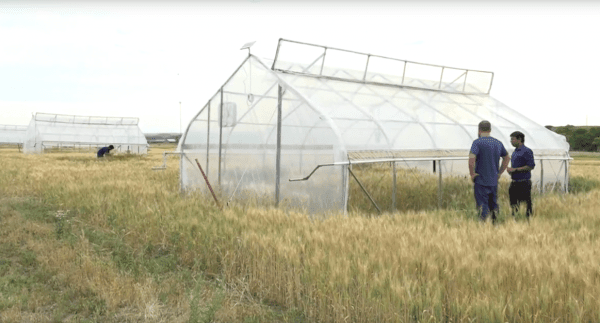Kansas State University researchers are turning up the heat on wheat to prove the point that higher nighttime temperatures may be to blame for significant yield and quality losses in the crop.
If what they believe is true, it could lead to improvements in breeding that would impact wheat grown around the world.
“What we are doing here is introducing a high nighttime temperature on wheat under realistic field conditions in order to study the physiological and genetic responses,” said Krishna Jagadish, associate professor of agronomy.
Jagadish and his team have planted wheat inside small tent structures that are equipped with heaters, fans, temperature sensors and a credit-card-sized computer so that they can control the amount of heat that the wheat is exposed to each night.
Continue reading at Kansas State University.
Image via Kansas State University.


